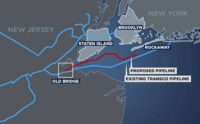Parkinson says handwritten notes, such as the one referenced in the complaint and the response, would be evidence of the resolution of disputes and should, under an IPD contract, modify the parties’ responsibility.
“Clearly, from the description of the project, the parties did not manage the contract in this way,” says Parkinson. “Kiewit-Turner requested additional changes to the design to get it below the agreed-upon construction budget, and it does not appear that either the designer nor the owner were willing to modify the design.”
A Cycle of Controversy for VA
The dispute renews a cycle of controversial VA projects for which the VA had been chastised in a report issued earlier this year by the General Accounting Office. It also embodies some of the problems that can beset a long design process in which the contracting team has plenty of chance to review the evolving scope during the design phase but still manages to end up with a price that both sides never agree has been made definite.
In essence, the department is arguing that Kiewit-Turner's involvement with the design process binds the contractor to the scope and design.
“The contract was an Integrated Design and Construct contract which required that Appellant be extensively involved in the design review process,” wrote the department’s lawyers in their response to the complaint. As a result, Kiewit-Turner “was contractually required, among other things, to collaborate with the A/E during all phases of the design and review the design at different stages to determine the constructability of the project.”
The contract required Kiewit-Turner to provide consulting, value engineering and alternative designs, the department points out.
Now that changes in market conditions have driven Kiewit-Turner’s subcontract prices much higher than expected, Kiewit-Turner is looking for a way out, the department claims.
In its complaint, Kiewit-Turner cited the handwritten note as evidence that the department violated a pledge to contain the project costs to $604 million. The note contains signatures of VA and Kiewit-Turner project personnel.
In the note, dated Nov. 9, 2011, VA and Kiewit-Turner officials pledge to “get price to $604 million” and “expend resources to keep that goal.” But the VA also agrees to cause the design team to produce a design that meets the funding limit and use alternates or other methods as a safety net.
Just what was intended by that statement and just what the department actually did to follow through remain open questions at the heart of the dispute.
This article was update Aug. 30 to reflect the fact that the hospital project is in Aurora, Colo., not Denver.




Post a comment to this article
Report Abusive Comment